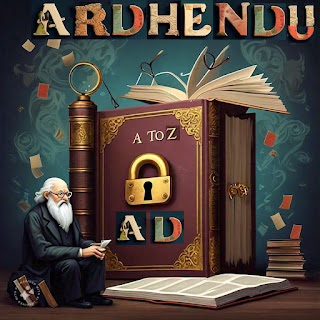A. Three Father Figures: Poetry: Chaucer; Comedy: Aristophanes; Printing: Caxton
B. French writer and philosopher, Voltaire’s Real name is François Marie Arouet (1694-1778).
C. In 1980 Salman Rushdie published the novel Midnight’s Children which employed magic realism. The book is noted for its insights into issues of personal and national identity in India and Pakistan as postcolonial nations.
D. A Suitable Boy (1993) by Vikram Seth traces the history of a family in a fictional town in post independence India.
E. Amitav Ghosh’s The Shadow Lines (1988) questions the validity of all sorts of boundaries, national and international.
F. Arundhati Roy won the Booker Prize, Britain’s highest literary award, for her novel The God of Small Things in 1997.
G. Sir Arthur Conan Doyle (1859-1930), British physician, novelist, and detective-story writer, best known as the creator of the character of master sleuth Sherlock Holmes.
H. Arthur Conan Doyle’s immortal characters: Sherlock Holmes, Dr. Watson.
I. Agatha Christie’s immortal characters: unconventional fictional detectives, Hercule Poirot and Miss Marple.
J. Dr. Johnson’s dictionary recorded only 48,000 words .But oxford dictionary later recorded 400,000 words. Encyclopedia Britannica has computed that a normally educated person uses 25,000 words.
L. Tyndale's Bible is taken from Erasmus.
M. Onomatopoeia is actually words and sounds imitated from the birds and animals. This is the most ancient method of making vocabulary .Examples: the word ‘buzz’ (from the sound of bees), hiss (from the sound of snake), bang, whiz (sound of winds), giggle, cuckoo, and whistle etc.
N. The followers of Martin Luther were afterwards called Protestants. Hence; reformation means the rise of protestant church. About some time, the reform movement was taken up by John Calvin of Geneva, Calvinism, a stricter form of Protestantism, soon spread to England, Scotland and Germany, Hungary and Holland.
O. An older word is given a now significance extending its meaning. For example the word manufacture literally meant ‘made by hand’ and was bound to be show but in the modern sense manufacture is used quiet differently ’.Manufacture’ now means large scale production – machine made . This is contrary to the original meaning, the word ‘plunder’ meant ‘household effects, now the seine word is used differently. Similarly the word ‘board’ means a piece of flat wood, a table sometimes board of directors or the dock of ship. Now we say ‘passengers ’’boarding.’
P. John Dryden (1631-1700) was the greatest satirists of the restoration age. And his three satires Absalom and Achithophel’ (1681), Medal’ (1682) and Mac-Fleck Moe’ (1682) are the master pieces of political vigor.
Q. Words assume different parts of speech ; this word ‘park’ originally was used only as a noun .but now we talk of parking or to park a car , etc .this what was once used as a noun only is now used as a verb with an entirely different meaning.
R. Latin and French were the dominant languages in the 14th century in England. However, in lateral half of 14th century English came to its own because of the great works done by Chaucer, Lang land, Yoder and Wycliffe, who wrote in English.
S. Abbreviation: fan is a word derived from fanatic but now it may be used as a verb also with its meaning slightly different ,sometimes we have new words by abbreviations –gin, brandy, rum are all abbreviations only.
T. Led by Rossetti some Painters organized themselves in London in 1848 into a group which come to be called ‘Pre-Raphaelite Brotherhood.’ Apart from Rosetti, William Holman Hunt, John Millais, Thomas Woolmer and James Collinson were the important members of this group.
U. Rajasekhara’s Kavyamimansa is a unique book of poetics; he was both rhetorician and playwright.
V. While courting, Trysdale's sweetheart asked him if he knew Spanish and he answered yes to impress her, even though he didn't know a word of Spanish- the story of The Cactus by O. Henry.
W. Melville traveled widely and later wrote of his adventures at sea. His masterpiece is Moby Dick, the story of one man’s destructive hunt for a white whale. In the book, Melville looks at good and evil in people and in nature.
X. The titles of each section of A Passage to India by E. M. Foster: Mosque, Caves and Temple.
Y. Okonkwo, the central figure of Things Fall Apart of Chinua Achebe is a tragic hero who is noble but flawed.
Z. There is an apparent paradox in Frost’s poetry: Frost is a pastoral poet but the conversions and habitation of pastoral poetry are not found in his piety. Front is a past oval poet with a difference.
Ref: Wikipedia, Literary Timelines, History of English Literature- Albert, The Concise Cambridge History of English Literature



Can u post or when will you post the answers for the Net exam conducted today, (24-06-2012) for all the three papers?? Expecting a positive reply and an early post of the answers.. G.Visalam
ReplyDeleteDear Visalam, the I soon get the questions, positively try to answer you back.
ReplyDeletethanks for your comment.